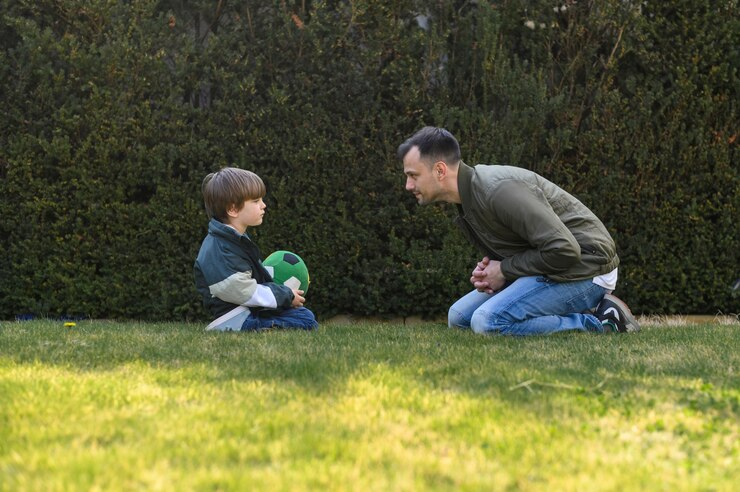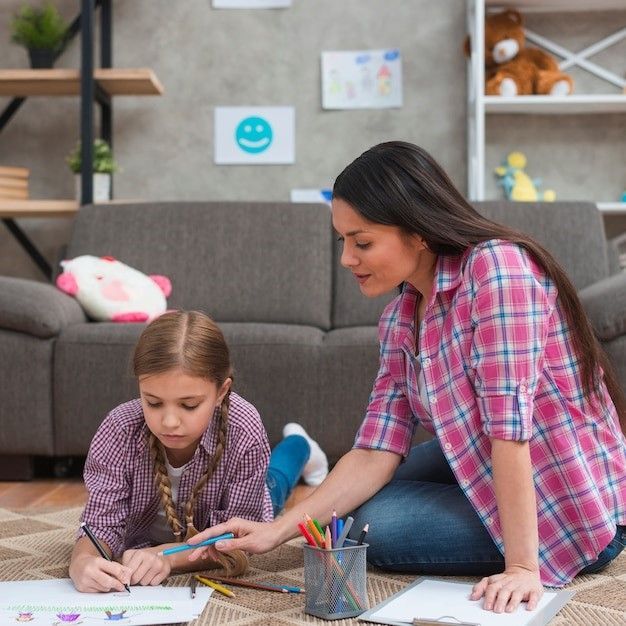How Can Sensitive Parents Coaching Benefit Your Family?
Parenting is a journey filled with joys, challenges, and countless moments of growth. As parents, we all strive to provide the best for our children and create a nurturing environment where they can thrive. However, navigating the complexities of parenthood can sometimes feel overwhelming, especially for sensitive parents who are deeply attuned to their children's emotions and needs. This is where sensitive parent coaching can make a profound difference in your family dynamic. Below, we are going to highlight how sensitive parent coaching can benefit your family, providing valuable insights and support every step of the way.
● Enhanced Communication:
Effective communication lies at the heart of any healthy family dynamic. Sensitive parenting classes equip you with valuable communication tools and techniques tailored to your unique parenting style. By learning how to express your thoughts and emotions openly and empathetically, you can foster deeper connections with your children and strengthen your family bonds.
● Emotional Regulation:
Sensitive parents often find themselves deeply impacted by their children's emotions, which can sometimes lead to overwhelm or burnout. Through specialized coaching sessions, you can learn practical strategies for managing your own emotions and responding calmly to challenging situations. By cultivating emotional resilience, you create a more stable and harmonious environment for your family to thrive.
● Empathy Development:
Empathy is a cornerstone of sensitive parenting, allowing you to understand and validate your children's feelings authentically. Sensitive parent coaching helps you hone your empathetic skills, enabling you to see the world through your child's eyes and respond with compassion and understanding. By modeling empathy, you teach your children valuable lessons in kindness and emotional intelligence.
● Effective Boundaries:
Setting boundaries is essential for creating a safe and respectful family environment. Sensitive parent coaching provides guidance on establishing clear and consistent boundaries that honor both your needs and those of your children. By maintaining healthy boundaries, you foster a sense of security and predictability that allows your family to thrive.
● Self-Care Practices:
As a sensitive parent, it's easy to prioritize your children's needs above your own. However, practicing self-care is crucial for your overall well-being and ability to parent effectively. Through coaching, you'll learn practical self-care strategies that nourish your mind, body, and soul, allowing you to show up as the best version of yourself for your family.
● Parenting Classes:
Sensitive parent coaching often includes access to parenting classes designed to address specific challenges or areas of growth. Whether you're a new dad seeking guidance on fatherhood or a seasoned parent navigating the teenage years, online parenting classes offer valuable insights and support tailored to your unique needs. From newborn care to adolescent development, new dad classes online empower you with the knowledge and confidence to navigate every stage of parenthood with grace and resilience.
● Community Support:
Parenting can sometimes feel like a solitary journey, but it doesn't have to be that way. Sensitive parents coaching provides access to a supportive community of like-minded individuals who understand and empathize with your experiences. Whether online or in-person, these communities offer a safe space to share struggles, celebrate successes, and find encouragement along the way.
Summing Up:
As we come to the end of our exploration into the benefits of sensitive parent coaching, I want to extend a personal invitation to you. I’m Dr. Ceara Deno, a certified parent coach, pediatrician, and a sensitive parent to two wonderful children. Drawing from my own experiences and professional expertise, I’m passionate about helping families like yours create peaceful homes and nurturing relationships. When you reach out to me at Sweet Spot Parent Coaching, you’ll find understanding, non-judgmental support, and a personalized plan tailored to your family's needs. Let's connect, discuss your journey, and explore how we can work together to bring about positive, lasting change in your family life.











